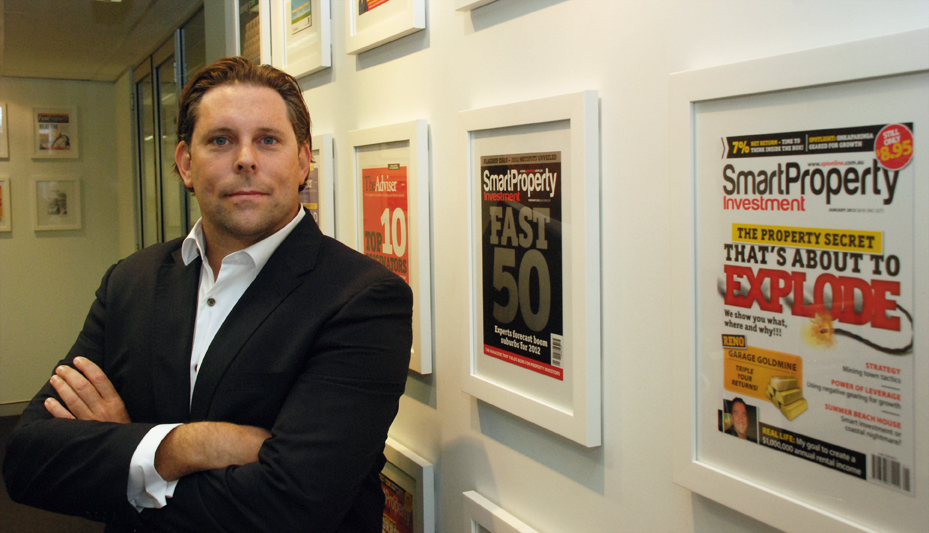Learning from my own mistakes
 Investors typically make a number of simple mistakes that are easily overcome – by drawing on my experience, I can offer some solutions
Investors typically make a number of simple mistakes that are easily overcome – by drawing on my experience, I can offer some solutions

Blogger: Phillip Tarrant, editor, Smart Property Investment
Throughout my journey as a property investor I have encountered a mixed bag of emotions and experiences – from exciting highs to stressful lows, striking renovation gold and falling head first into an investor trap.
But just when I think I have seen it all, something will come along and make me stop, reassess and revaluate my investment strategy. But I know I am not alone.
As editor of Smart Property Investment, I hear similar stories time and time again. Frustrated investors who have encountered problems which leave them asking the same questions: How did this happen? Where did I go wrong?
To help you avoid some of the more common investor mishaps, I have put together a list of my top three investment don’ts.
1. Quality over quantity
At the top of the list is this one: make sure you are doing quality research.
Many first-time investors overcomplicate the buying process, attending a thousand open houses and seminars and surrounding themselves with housing data and property research.
The end result of collecting every piece of information possible will be only one thing – the dreaded ‘analysis paralysis’.
Investors who suffer from the effects of information overload will often hesitate, and this can cause them to miss out on a number of buying opportunities.
It is important to be able to identify what data affect your investment strategy and to prioritise information accordingly.
Remember: when it comes to property investment, sometimes you just have to get on with it.
2. Number crunching
Another common mistake is focusing too heavily on the data and especially the numbers. When people pick up Smart Property Investment they very often head straight to the back of the magazine before reading anything else. While this information is great for identifying areas that are set for solid growth based on certain metrics, every suburb and every street is different.
Sometimes these differences can’t be picked up from the numbers alone. You need to have eyes on the ground – it is just as important to get out and talk to property contractors and residents in the target area.
Find out what development plans are scheduled for the suburb and talk to people living in the area to find out what issues might arise in the near future.
This type of research will also help highlight important demographic factors that might, again, be overlooked in the numbers.
3. Strictly business
Another mistake I see being made is one that regularly causes investors to overcapitalise when renovating. They frequently treat their investment project as they would a home renovation, and the two are not the same.
It is absolutely crucial to treat an investment as a business. If you find yourself basing decisions on your own personal tastes, you’re sure to end up footing the bill for a budget blowout.
Many of the things you might like to see in a property won’t bring in more rent and won’t convince the valuers that it is worth more. Don’t get carried away. Usually, it is the simple touches such as a fresh coat of paint and new carpets that can make a huge difference.
As with everything else in life, property investment is a balancing act. It is important to be able to realise when you need more research and when you have gathered enough information to make an informed decision and take action.
About Phillip Tarrant Phillip is a media professional as well as an active property investor. He has over 10 years’ experience reporting on the mortgage and property markets and has worked extensively with Australia’s leading mortgage lenders and brokers as a corporate communications and public relations consultant. As a property investor Phillip advocates the principals of research, due diligence and surrounding yourself with the right team to make informed and educated property investment decisions. As well as being editor of Smart Property Investment, Phillip sits on the Board of the Property Investment Professionals of Australia (PIPA), the peak industry body for the property investment industry. He also sits on the Board of Publishers Australia, which represents best practice, innovation and professionalism in publishing. These two positions offer Phillip insights and awareness to the latest issues, activities, techniques and best practice principals across both industry sectors and ensure Smart Property Investment remains focused on delivering quality content to its readers.
Phillip is a media professional as well as an active property investor. He has over 10 years’ experience reporting on the mortgage and property markets and has worked extensively with Australia’s leading mortgage lenders and brokers as a corporate communications and public relations consultant. As a property investor Phillip advocates the principals of research, due diligence and surrounding yourself with the right team to make informed and educated property investment decisions. As well as being editor of Smart Property Investment, Phillip sits on the Board of the Property Investment Professionals of Australia (PIPA), the peak industry body for the property investment industry. He also sits on the Board of Publishers Australia, which represents best practice, innovation and professionalism in publishing. These two positions offer Phillip insights and awareness to the latest issues, activities, techniques and best practice principals across both industry sectors and ensure Smart Property Investment remains focused on delivering quality content to its readers.
